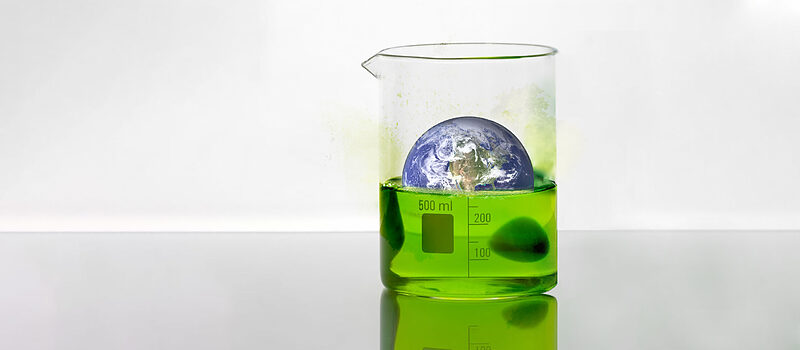
Environment Week: Sustainable Chemistry for a sustainable future
ISC3 (Research & Education Hub) and N3 Nachhaltigkeitsberatung Dr. Friege & Partner
Federal President Frank-Walter Steinmeier and the German Federal Environmental Foundation (DBU) invite you to the "Week of the Environment" on 4 and 5 June. The park of Bellevue Palace in Berlin will be transformed into a city of tents and stages - with around 190 exhibitors and a programme of stages and specialist forums on current environmental topics and with well-known and high-ranking personalities from politics, society, business and science. Numerous clever ideas from all regions of Germany will be presented.
Sustainable Chemistry helps to protect the climate, preserve biodiversity and resources and improve our lives. Sustainable chemistry is therefore much more than just "Green Chemistry". Above all, "Green Chemistry" means producing chemicals in a climate and environmentally friendly way. This includes using energy and raw materials efficiently and sparingly and also replacing hazardous substances with less toxic ones that are more biodegradable in the environment.
None of this makes "chemistry" "sustainable":
This is because the amount of chemicals produced worldwide is increasing. The energy used, the raw materials required and the waste produced are overstretching the earth's carrying capacity.
However, Sustainable Chemistry offers a solution here. Firstly, it asks whether we need chemicals at all for this or that purpose. Can we do without them? After all, for every chemical that is not produced, neither energy nor raw materials are consumed. The production and handling of chemicals is considered in terms of climate protection, the preservation of biodiversity, safe food and the protection of human rights. Sustainable solutions must therefore also take social and ethical aspects into account and involve all stakeholders along the life cycle of products and services.
Ultimately, Sustainable Chemistry is about ensuring that the diverse contributions that chemistry can and must make to sustainability are also made in a sustainable manner. Stefanie Wieck (Federal Environment Agency), Klaus Kümmerer (ISC3 - International Sustainable Chemistry Collaborative Centre and University of Lüneburg) and Henning Friege (N³ Nachhaltigkeitsberatung) will use a number of examples to show how Sustainable Chemistry works and is effective. In the discussion, which will be moderated by science journalist Ralph H. Ahrens, they will work with you to develop approaches for cases that interest you.
Information about the location and registration for free participation can be found here: https://www.woche-der-umwelt.de/

